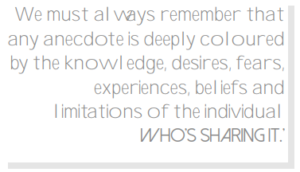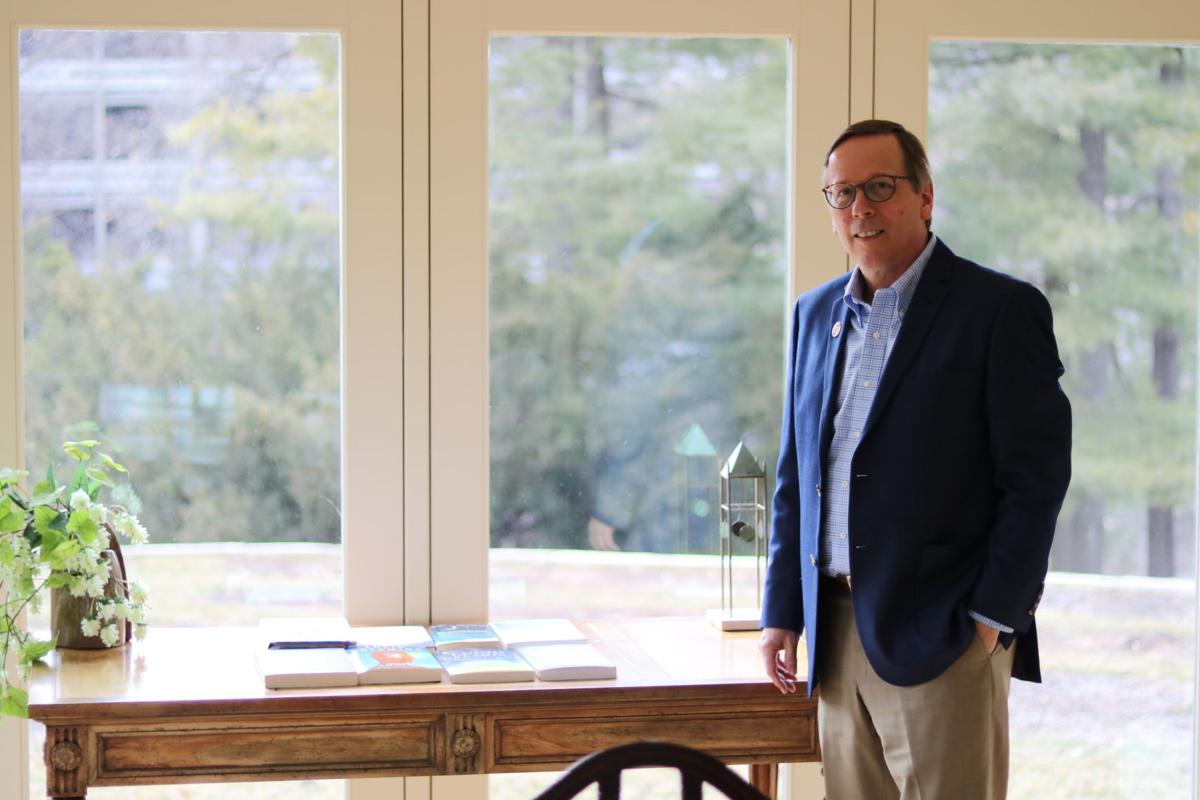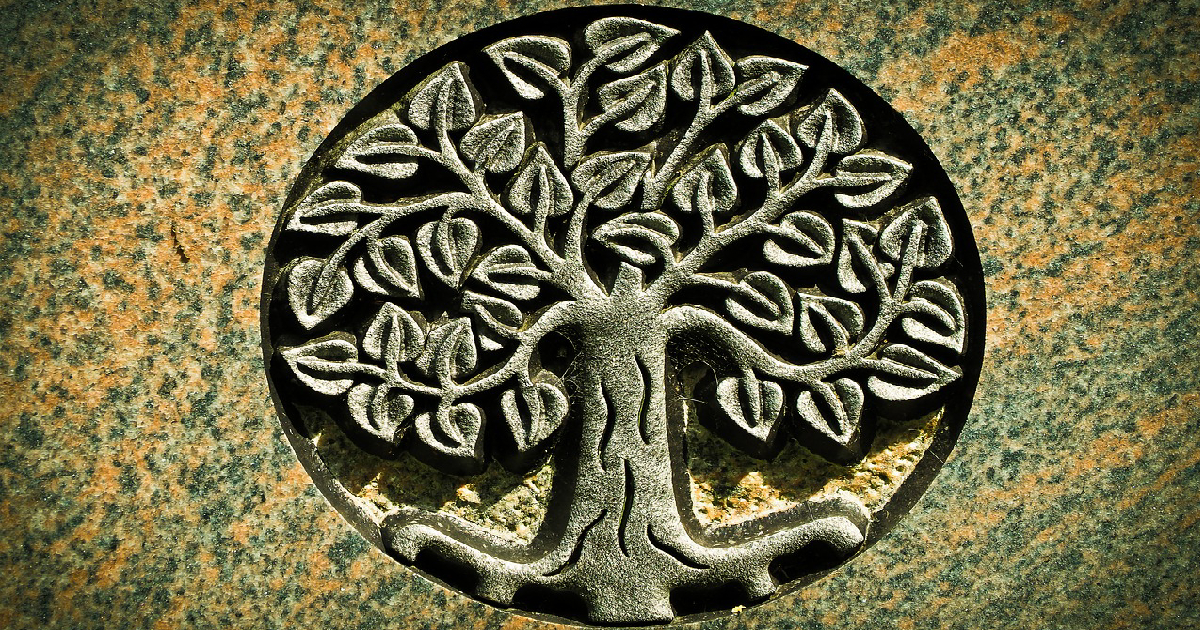If a dreamer becomes lucid upon observing a deceased dream figure, and then receives a message from the deceased dream figure with information that later proves true, how should we take that? Or if a lucid dreamer like Ed Kellogg, PhD, reports going in search of a recently deceased acquaintance while lucid, and finds them, learns things about the deceased, then awakes and shares the results with the family of the deceased (who confirm Ed’s observations as valid and outside of Ed’s knowledge), then how should we take that?
Well, it‘s certainly not my place, nor anyone else‘s, to tell others how to think or what to believe, especially in matters so sensitive, however, I‘d be happy to share how I would personally approach such an anecdote in the hope that it helps others draw their own conclusions. This may be somewhat of a long answer, but I feel it deserves a good deal of thought, so, let‘s jump in.
My first port of call upon hearing any extraordinary claim, especially those that seem to contradict our current understanding of the universe, is to look at universal human desires and needs and to establish if the given answer to a problem seems to coincide with these. To elaborate, as humans, be we theists, atheists, spiritual, scientific or any of the myriad of variations possible, we all share some fundamental desires and fears; and we must be careful not to ignore the power these have in colouring our perceptions of the world.
Perhaps one of the most universal of all human fears (and relevant to your anecdote) is that of death. Now, arguably the most comfortable solution to this fear is the answer ‘death is not the end’. For me, when I see comfortable answers to deep human desires and fears, I am inclined to hear alarm bells ringing – not that I would ever dismiss them out of hand, instead, I become very aware that an increased level of clarity and skepticism may be required to overcome my human bias and vested interest.
In other words, as I also fear death, I must be careful not to let that same fear influence how I view the evidence. Simpler still: if we want something to be true, we are at a higher risk of deceiving ourselves.
So, my starting point with an anecdote such as the one you share, would be firstly to question the role of my own human desires and motives and to then attempt to distance myself from these biases so they do not colour my investigation into the evidence presented.
Anecdotes are tricky things. They exist for almost any unusual experience you can imagine, from telepathy to alien abduction, from visitations of ghosts to levitating monks. Whatever your personal beliefs, you will also find others with contradictory beliefs with as many anecdotes defending their position. If you take this to an extreme case, those suffering from mental illness will have many stories that they are convinced justify their hallucinatory experiences.
So the first thing we can say with some certainty, is that the existence of anecdotal stories are, at best, only a hint that something has happened, but that something may very well not be the same as the conclusion the experiencer has drawn.
For example, an anecdote of an alien abduction may in reality have more to do with the experience of sleep paralysis than extraterrestrials. The person who experienced the event may very well be convinced that they experienced an abduction, but perhaps they lack a vital piece of knowledge or evidence. In this example it‘s the power of sleep paralysis and its accompanying hallucinations. We must always remember that any anecdote is deeply coloured by the knowledge, desires, fears, experiences, beliefs and limitations of the individual who‘s sharing it.
In the case of a dream of the deceased offering seemingly previous unknown knowledge that later proves to be true, we are opening the floodgates to a tsunami of variables that we cannot easily, if ever, account for. We are also entering an area where those involved have a very strong bias for wanting to believe that contact has been made.
We must remember though, that it would be impossible to conclude from anecdotal evidence alone exactly what happened. Like a court of law, strong evidence would be required before the case could be solved. Without good evidence, a claim cannot be substantiated and we must accept that until it can, it is a belief and not a truth.
We must also be careful to remember that in a world of seven billion individuals, unbelievable coincidences will happen on a regular basis to a large number of people. The human mind is poorly equipped to deal with peculiarities of statistics and chance, yet it is incredibly skilled at finding patterns and connections, even to the point that it will deduce connections that do not exist.
We‘ll have on average five dreams a night and our dreams are often related to current events in our life. Multiply those five dreams by a lifetime and then multiply that number by seven billion to encompass the population of the planet, then ask yourself: is it unlikely that occasionally some individuals will have coincidental dreams that have some amazing connection to their (or their acquaintances‘) waking lives?
 None of this is of course ruling out the possibility of genuine events, but hopefully it helps us avoid immediately jumping to the conclusion that the only possible answer is a supernatural cause. It‘s clear that even without supernatural causes, amazing events will occur purely by chance. It‘s important to remain level headed and explore simple (albeit possibly less exciting) answers as well as the more elaborate conclusions.
None of this is of course ruling out the possibility of genuine events, but hopefully it helps us avoid immediately jumping to the conclusion that the only possible answer is a supernatural cause. It‘s clear that even without supernatural causes, amazing events will occur purely by chance. It‘s important to remain level headed and explore simple (albeit possibly less exciting) answers as well as the more elaborate conclusions.
In the end, I prefer to err on the side of caution and take inspiration from the stories of Sherlock Holmes; to look at the evidence as it presents itself, rule out that which is unlikely or improbable, avoid personal bias as much as possible and draw a conclusion that is based solely around the available facts of each individual case.
Of course, not all cases will have enough evidence to draw any conclusion at all and in that eventuality, we must simply be happy with the answer ‘I cannot be certain’, as there is no shame in a universe as complicated and strange as ours, to occasionally admit that we cannot have an answer for everything.
In the anecdotes you share, the only honest answer I can give is that there is simply not enough information available to conclude anything more than someone believed they experienced something. In my opinion there‘s certainly not enough evidence to justify sharing their conclusion.
Whilst I would absolutely love to believe that life continues after death and that dreams are a doorway to such a world, I have sadly yet to come across evidence that is compelling enough to substantiate such a huge claim. Though with humility, I would not completely rule out the possibility, but I do feel it would be an amazingly convenient and reassuring piece of luck if it were so.
After all, nature has no responsibility whatsoever to conform to the wants and needs of humans. Historically we‘ve not fared well in these regards. Not so long ago we wished and believed the earth to be the centre of the universe and that the sun orbited earth. Sadly it turned out our conceit in those matters couldn‘t have been further from the truth.
To sum up, whatever you or I believe or wish to be true, we must try to not let those beliefs and motivations lend bias to new information. We should treat every new story with an open yet skeptical mind, even if that may occasionally mean that we need to reevaluate our worldview or admit that we have previously been wrong. We can all fall victim to cherry picking evidence and seeing only that which conforms to our beliefs. If we‘re really seeking the truth behind a matter, rather than pandering to our own wishes, we must try our utmost to avoid personal bias and be willing to change our views to conform with reality when the evidence requires us to do so, not to attempt to change reality to conform to our beliefs.
I feel strong evidence is the best foundation for any opinion, and of course the gathering of evidence is an ongoing lifelong pursuit. Perhaps on questions as deep as these, we can only ever honestly say that our conclusions are an ever morphing work in progress.
As you look into the future, what areas do you hope that scientific researchers will explore in the field of lucid dreaming? What kind of experiments would you like to see?
This is a really tricky question because there is just so much left to explore. In the final chapter of my book I‘ve discussed a few of the areas in which I‘d like to see more research, from the use of lucid dreaming in future space missions to the development of technologies that allow communication between dreamers.
One area I feel would benefit greatly from the use of lucid dreaming would be research such as that occurring at the ATR Computational Neuroscience Laboratories, in Kyoto, western Japan. Currently they are using an MRI scanning technique to ‘decode’ people‘s dreams, essentially using the MRI to locate exactly which parts of the brain are active during dreams, then using retrospective dream reports to tie together the dream imagery and the activated areas of the brain.
This combined with MRI scans from awake subjects viewing various images, they are attempting to create a database of brain activation that relates to specific experiences, the long term goal is to create a computer algorithm capable of ‘reading’ people’s dreams from brain activity alone. Currently their research seems very promising, however It‘s clear that the use of lucid dreaming in their research would offer huge benefits to their work, sidestepping the unpredictable variables of non-lucid dreaming and allowing for a far more focused, directed and controlled research.
And one last thing… Are you dreaming?
Well, be we waking or sleeping, I believe our subjective experience of every aspect of reality is all a form of dream; at least it is if we define a dream as a mental model of an experience. We are, each of us, amazing creatures gifted with the beautiful gem that is the human brain and it is a product of the brain, namely dreaming, or the creation of mental models, that defines us as a species. This has been the primary means of how we experience and understand the universe around us.

Image by Anke Sundermeier from Pixabay
The dreams we experience behind closed eyes are a microcosm of the elaborate interplay of our psychological interactions with the universe during our waking hours. In our sleeping dreams we dance in the malleable gardens of our memories, but our waking life is a form of interactive dream; the universe feeds our brain through our senses and in turn our brain builds a miniature copy (a form of dream) of the universe within it, albeit a unique slice of the universe carved from our personal passage through time and space (we tend to call this model ‘me’).
It is through this model, our ‘big dream’, that we come to know our place in the mystery we call a universe and through this model that we interact and shape the universe. So, if viewed this way, yes, I (and you) are indeed dreaming, and what a wonderful dream it is! I‘m glad to share it with others who find the whole process so absolutely fascinating!
Thanks for this interview, Daniel. Read more about Daniel Love at his various media sites:
Website: http://www.exploringluciddreams.com/
Facebook: https://www.facebook.com/ExploringLucidDreams
Twitter: https://twitter.com/lucid_dreaming
Amazon: http://www.amazon.com/dp/0957497709


